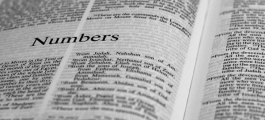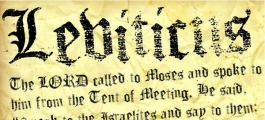Tag: Jewish
0
0
September 19, 2011
Posted by WebMaster in All Posts, Articles, Bible Study, Ciro The Jew, Uncategorized
"What is Messianic Judaism?"
Messianic Judaism is the term given to Jewish people who believe and have accepted Yeshua (the Hebrew name for Jesus) of Nazareth as the promised Messiah of the Hebrew Scriptures. These Jewish people do not stop being Jewish, but they continue to remain strong in their Jewish identity, lifestyle and culture, while following Yeshua as He is revealed in the Brit Chadashah, the New Covenant. Many Messianic Jews refer to themselves as “completed Jews,” since they believe that their faith in the God of Israel has been “completed” or fulfilled in Yeshua. In reality, Messianic Judaism began 2,000 years ago. Yeshua Himself was an observant Jew, most of the Apostles and writers of the New Covenant were Jewish, and the vast majority of the early believers in Yeshua were also Jewish (see Acts chapter 2). Traditional rabbinical Judaism today does not believe that Yeshua is the Jewish Messiah. Observant Jews are still waiting faithfully in accordance with the Rambam’s (Rabbi Moses Maimonides, 1134-1204) “Thirteen Principles of Jewish Faith,” which states in Principle 12, “I believe with perfect faith in the coming of the Messiah. However long it takes, I will await His coming every day.” Most secular Jews do not believe in the physical coming of a personal Messiah, but some still look forward to a general Messianic concept or Messianic Age. Today, it is estimated that there are over 350,000 Messianic Jews in the world, and the numbers are growing all the time. Messianic synagogues have also become very popular, and recent estimates number more than 200 congregations in this country. There are also many Messianic congregations in Israel and around the world. Messianic Jews continue to celebrate the Jewish festivals and feast days as prescribed in the Hebrew Scriptures (i.e., Passover, Day of Atonement, etc.) but they do it in a way that demonstrates how Yeshua has already fulfilled these Holy Days. Most Messianic Jews do not celebrate Christmas or Easter, since neither holiday is mentioned in the New Covenant. Jews who now follow Yeshua the Messiah understand that everything given in the Old Covenant was a “mere shadow” of the better things to come in the New. by Gotquestions.org0
What Does the Bible Teach?
1. Can those born of God leave Christ?
- 1John 2:19
- John indicates here that leaving Christ indicates that one had never been born of God
- 1John 3:6
0



 0%
0%


